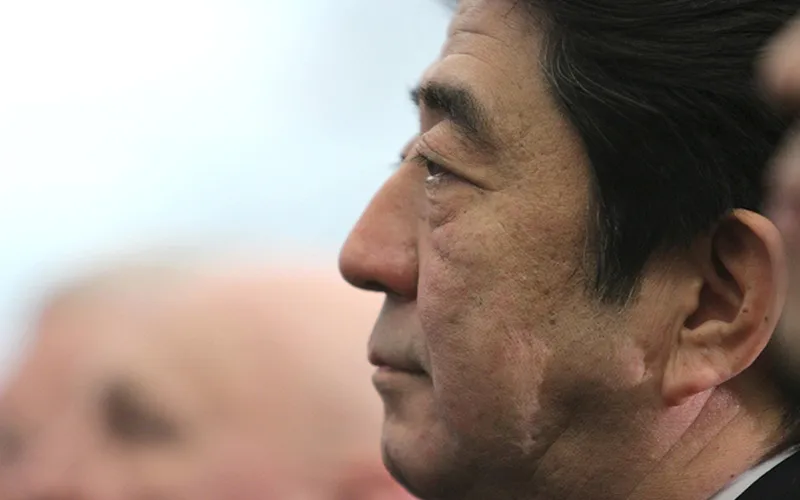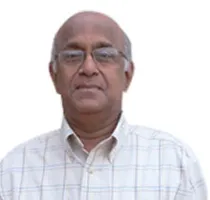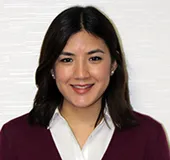"Seventy years have passed since the end of the World War II and yet issues connected with the post war reconciliation process are continuing to haunt relations between countries in Asia. Whereas Japan and South East Asian countries have gone a long way in adjusting their relations, ties between Japan and China, and Japan and South Korea continue to be obstructed by historical issues.
It was on August 15, 1945 that the Japanese Emperor Hirohito announced the unconditional surrender of Japan in WW II. Keeping the tradition with his predecessors, Prime Minister Abe Shinzo will make his 70th anniversary address. The new statement is already under close scrutiny by Asian nations - especially China and South Korea, which widely view Abe as a ""revisionist"", and which bore the brunt of Japan's wartime excesses in the pre-war years. Mr. Abe does realize that East Asian countries attach great importance to his address which could contribute to reconciliation with South Korea and China, or aggravate the already strained relations. Will he apologize and reiterate the crucial aspects of the statements issued by previous Japanese leaders, and if he chooses not to, why?
As any anniversary marking the end of a war, this day should be used to reflect on the terrible pain inflicted by the war in the past, and give hope to shape a better, more peaceful future. The issue that arises in East Asia is that, unlike Europe, crafting a reconciliatory narrative has been a particularly difficult challenge. Divergent understandings of the past conflict, territorial disputes, and the comfort women issue have deeply affected the national identity formation and nation building for these countries, driving them further apart.
Since the beginning of the year, a great deal of the attention on Japan has been focussed on the content of Mr. Abe's projected statement on the Japanese Government's views of the war. Earlier this year, Abe had stated that he did not feel it necessary to repeat the wordings of apology for Japan's wartime actions since he had already decided to uphold the statements issued by previous Prime Ministers.
In what was seen as a prelude to his upcoming statement, Mr. Abe's April address to a summit of Asian and African leaders in Jakarta, expressed Japan's ""deep remorse"" over the war, but did not offer a ""heartfelt apology"" to the people of Asian nations affected by Japan's ""colonial rule and aggression"" during and before the war. Similarly, much to the dismay of US lawmakers who have called upon Abe to reaffirm and validate previous Japanese war apologies; his joint address to the US congress in April, expressed ""deep remorse"", yet once again omitted the term ""apology"". Instead Mr. Abe emphasized ""Japan's new banner"" that is ""proactive contribution to peace based on the principle of international cooperation.""
By these actions, Abe risks losing the confidence of the international community that previous Japanese leaders managed to secure. The 1993 statement by Chief Cabinet Secretary Kono Yohei, alongside statements issued by Prime Minister Murayama Tomiichi in 1995, and Prime Minister Koizumi Junichiro in 2005 were important due to the fact that they contained the terms ""heartfelt apology"" and ""colonial rule and aggression."" These statements have played a crucial role in reassuring Japan's willingness to accept its war time history.
While many experts argue that these expressions are adequate, for numerous reasons they do not resonate with China, South Korea, and many in the international community as well. The inability of Japanese right wing nationalists in accepting Japan's war time atrocities, in addition to visits made by Japanese leaders such as Mr. Koizumi, and Mr. Abe to the Yasukuni Shrine (a shrine in Tokyo that houses Class - A wartime criminals); and incidents such as the 'textbook controversy' all seem to have undermined the importance of these apologies.
That the changing geopolitical climate in North East Asia has left Japan feeling vulnerable is clear. The North Korean nuclear regime and the rise of China have prompted the Japanese government to reinterpret Japan's pacifist constitution, and pass two security bills to ensure the more proactive role of Japan's self defense forces. These events have further provoked China and South Korea to protest against what they view as Japan's return to militarism.
Keeping aside the merits of their cries, refraining from apologizing will only complicate the situation further. Most recently South Korean President Park Geun-hye expressed that Mr. Abe in his war anniversary statement should adhere to the 1995 Murayama statement, which offered an apology and described Japanese action during World War II as ""aggression"".
Internationally German Chancellor, Angela Merkel during her visit to Tokyo in March 2015, also urged Japan to properly address its wartime conduct. Further, a group of 187 scholars of Japanese and East Asian studies, have called on Japan to accurately address its history of colonial rule and wartime actions, particularly the ""comfort women"" who were forced to work in Japanese wartime military brothels.
Domestically there is also considerable pressure on Mr. Abe, some of it coming from within his Liberal Democratic Party as well. Mr Komura Masahiko, the LDP Vice President has urged Mr. Abe to uphold past government apologies and expressions of remorse for Japan's war time aggression in Asia. Ex- Prime Minister of Japan Murayama Tomiichi, alongside Kono Yohei, the former cabinet secretary in charge of releasing the 1993 Kono statement also echoed the same sentiments. They called on Prime Minister Abe to stand by the statement released in 1995.
Acknowledging how high the stakes are, earlier this year Mr. Abe set up a 16 member panel of scholars, business leaders, and other experts to aid in advising him on the content of his statement. However, the report of the panel will serve only as a ""reference"" point for the government as it drafts Mr. Abe's statement. Further, within this panel itself, there are contrasting views of what this statement should entail. A prominent Japanese Scholar, and advisory member to the panel, Prof. Kitaoka Shinichi stated that he wanted Mr. Abe to acknowledge that Japan had indeed committed aggression. On the other hand, some of the panel members have stated that a change of wording from the previous anniversary statements would only be natural.
Thus it can be established that the arguments surrounding Mr. Abe's statement are two fold - one being that Mr. Abe should apologize and uphold the statements made by his predecessors, while the second being that he should take a more future oriented approach, that would involve a change in terminology.
Presently there has been some momentum in Japan-China and Japan-South Korea relations. Mr. Abe is likely to visit China for summit talks with President Xi Jinping around 3 September 2015, when China commemorates its 70th anniversary of the end of World War II. Further, President Park has stated that she wants to make this year, the 70th anniversary of the end of World War II, as well as the 50th anniversary of the normalization of relations between Japan and South Korea, a year to start moving bilateral ties forward.
In order for Japan to have harmonious relations with China and South Korea, one must be able to accept and right the wrongs done in the past. Changing the language of the apology would be misconstrued as doubting or questioning past statements. Thus one could think of three options for Mr. Abe. Firstly, that Mr. Abe should make a sincere and unambiguous apology, and adhere to the expressions that have been made by previous prime ministers. Shining a light on Japan's post-war accomplishments without first addressing Japan's victims with an admission of guilt and remorse would be counterproductive. Secondly, showing contrition, while looking to the future, and letting the world know that Japan wants to continue to pro-actively contribute to peace is a sure sign of progress. This could well be a stepping stone in improved Japanese diplomatic relations in North East Asia. Thirdly, it is extremely important for the peoples of Japan, China and South Korea to have a deep understanding of each other's perceptions and understandings of history. They should begin to conduct history education reform, and resume their joint history research and joint history textbook projects.
Lastly, the common rhetoric in Japan is that they have hit the wall, and are suffering an ""apology fatigue,"" caused by the failure of China and South Korea to recognize Tokyo's repeated apologies. If Abe does apologize, it is important that South Korea and China acknowledge this and sincerely work to improve bilateral ties. "
The views expressed above belong to the author(s). ORF research and analyses now available on Telegram! Click here to access our curated content — blogs, longforms and interviews.




 PREV
PREV



